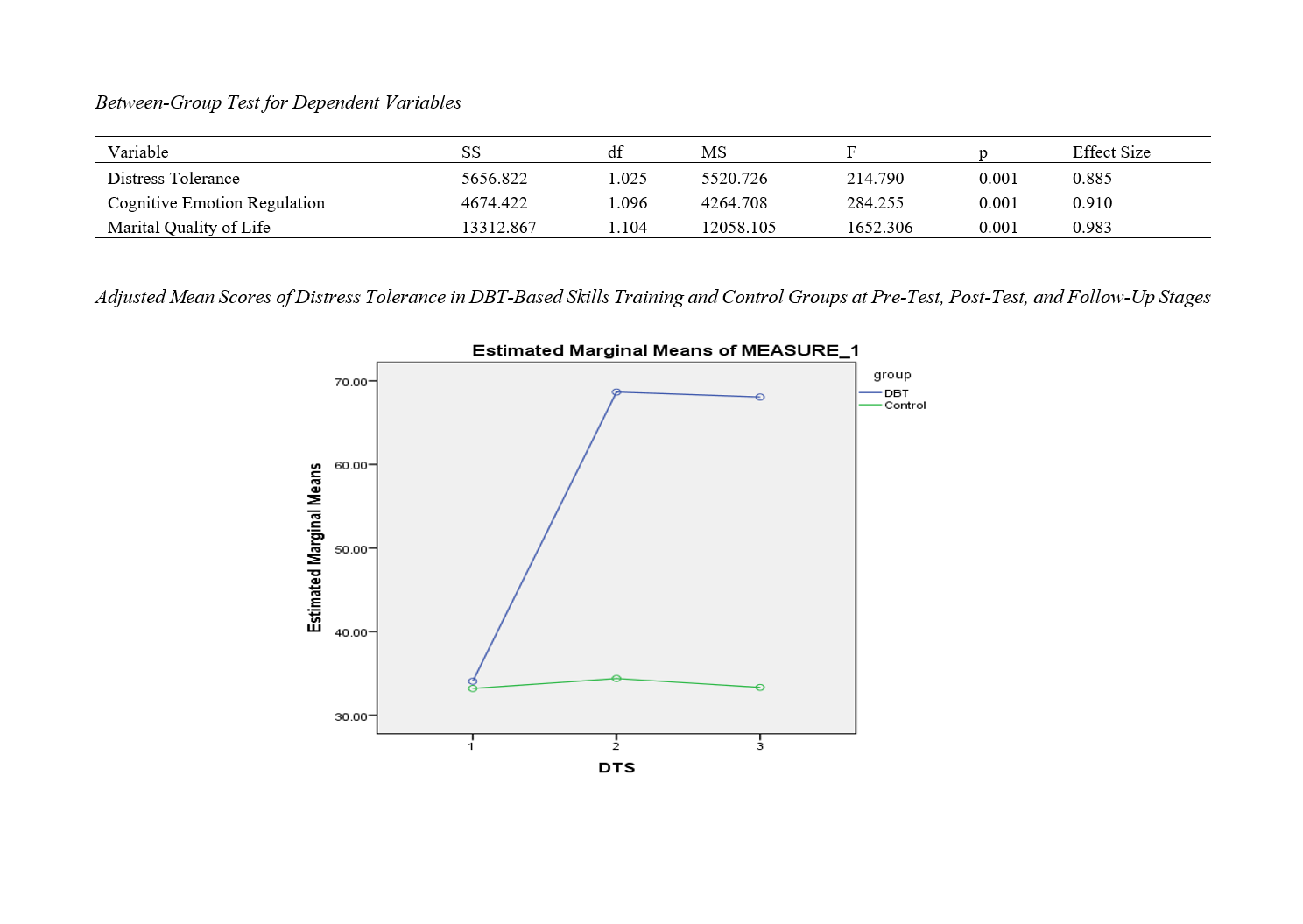The Effectiveness of Dialectical Behavior Therapy-Based Skills Training on Distress Tolerance, Cognitive Emotion Regulation, and Marital Quality of Life in Women with Recurrent Miscarriages
Keywords:
women with recurrent miscarriages, distress tolerance, cognitive emotion regulation, marital quality of life, dialectical behavior therapy-based skills trainingAbstract
Objective: The aim of this study was to examine the effectiveness of dialectical behavior therapy-based skills training on distress tolerance, cognitive emotion regulation, and marital quality of life in women with recurrent miscarriages.
Methods: The statistical population consisted of all women who visited infertility clinics in Tehran in 2019-2020. A sample of 30 women was selected using convenience and purposive sampling methods, based on inclusion and exclusion criteria, and was randomly assigned to experimental and control groups (15 women in each group). The questionnaires used in this study were the Distress Tolerance Questionnaire by Simons and Gaher (2005), the Cognitive Emotion Regulation Questionnaire by Garnefski, Kraaij, and Spinhoven (2006), and the Marital Quality of Life Questionnaire by Fletcher, Simpson, and Thomas (2000). The statistical method used was repeated measures, with a significance level of 0.05.
Findings: According to the results, the differences in means between the two groups in the pre-test, post-test, and follow-up stages were significant. There were significant differences in distress tolerance, cognitive emotion regulation, and marital quality of life between the two groups. The dialectical behavior therapy-based skills training had an impact on the variables of distress tolerance, cognitive emotion regulation, and marital quality of life, with effect sizes of 0.885, 0.910, and 0.983, respectively.
Conclusion: Given the confirmed effectiveness of this therapy, it is recommended that these women receive appropriate psychological treatments alongside medical treatments.
Downloads

Downloads
Additional Files
Published
Submitted
Revised
Accepted
Issue
Section
License

This work is licensed under a Creative Commons Attribution-NonCommercial 4.0 International License.




















